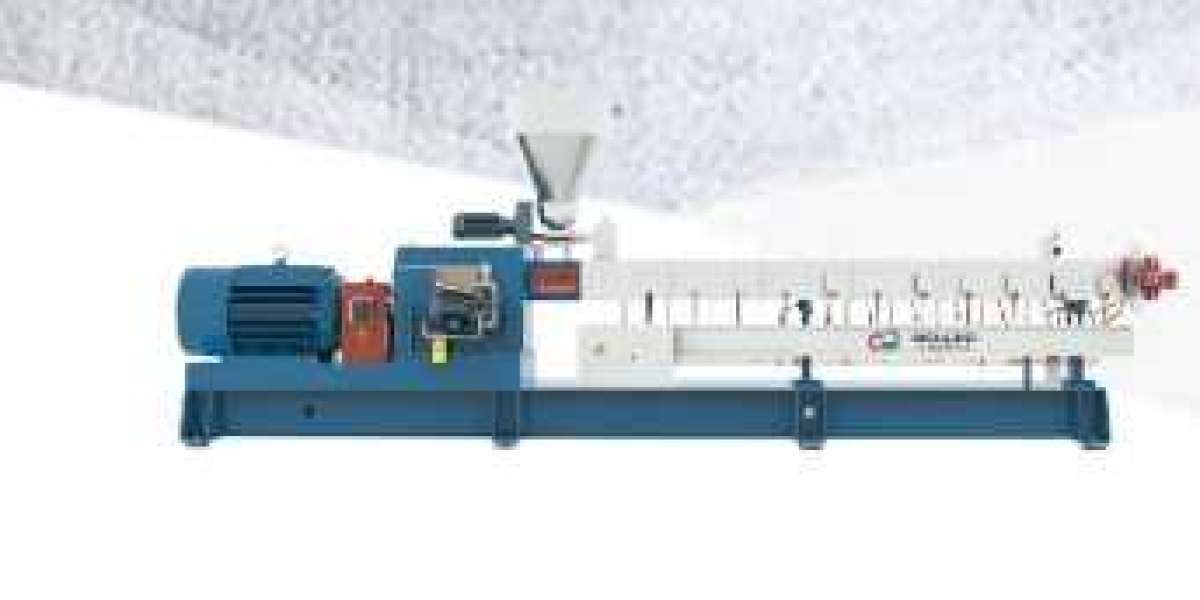Extrusion technology plays a pivotal role in various industries, from food and plastics to pharmaceuticals and chemicals. Among the different types of extruders available, twin screw, single screw, and benchtop extruders stand out for their important functionalities and applications. This article delves into the functionalities and benefits of these diverse extrusion machines, shedding light on their significance in manufacturing processes.
Introduction
Extrusion is a versatile manufacturing process used to create a wide range of products, including plastic films, food products, pharmaceutical tablets, and more. At the heart of the extrusion process are extruders, which are specialized machines designed to melt, mix, and shape raw materials into desired forms. Twin screw, single screw, and benchtop extruders represent three distinct variations of extrusion technology, each with its own set of capabilities and advantages.
Twin Screw Extruder: Versatility and Efficiency
Twin screw extruders are characterized by their dual intermeshing screws that rotate within a barrel to convey, mix, and melt materials. These extruders offer great mixing and compounding capabilities, making them ideal for processing a wide range of materials, including polymers, plastics, rubber, and food ingredients.
The functionality of twin screw extruders lies in their ability to provide precise control over the mixing and melting process, resulting in uniform product quality and enhanced efficiency. With the ability to operate at varying screw speeds and temperature zones, twin screw extruders offer flexibility and versatility in processing different formulations and achieving desired product properties.
Single Screw Extruder: Simplicity and Reliability
Single screw extruders feature a single rotating screw within a barrel, which conveys and melts the material as it moves along the length of the barrel. While not as versatile as twin screw extruders, single screw extruders are widely used for simple extrusion processes, such as film and sheet production, pipe and profile extrusion, and pelletizing.
The functionality of single screw extruders lies in their simplicity and reliability, making them well-suited for a wide range of applications in various industries. With fewer moving parts and less complex operating parameters, single screw extruders offer ease of operation, maintenance, and affordability compared to their twin screw counterparts.
Benchtop Extruder: Compactness and Portability
Benchtop extruders are compact, tabletop-sized extrusion machines designed for laboratory-scale or small-scale production applications. These extruders are typically used for research, development, and testing purposes, allowing manufacturers to prototype new formulations, evaluate material properties, and conduct small-scale production trials.
The functionality of benchtop extruders lies in their compactness and portability, which make them ideal for use in limited laboratory or production spaces. Despite their small size, benchtop extruders offer precise control over extrusion parameters, allowing researchers and engineers to simulate larger-scale extrusion processes and optimize formulations before scaling up to full production.
Conclusion
In conclusion, twin screw, single screw, and benchtop extruders each offer important functionalities and benefits for a wide range of extrusion applications. Whether processing polymers, plastics, food ingredients, or pharmaceuticals, these extrusion machines play a vital role in manufacturing processes across various industries. As technology continues to advance and demand for specialized extrusion solutions grows, the importance of twin screw, single screw, and benchtop extruders in achieving efficient and cost-effective production will only continue to increase.








